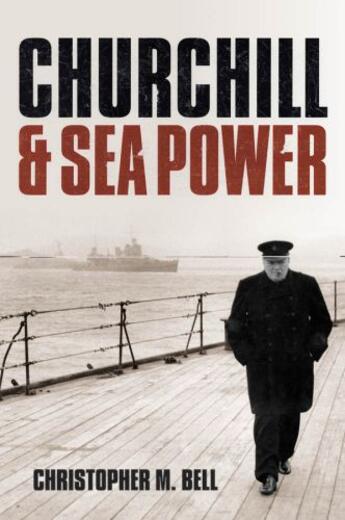-
Nombre de pages : (-)
-
Collection :
(-)
-
Genre :
(-)
-
Thème :
Non attribué
-
Prix littéraire(s) :
(-)
Résumé:
Winston Churchill had a longer and closer relationship with the Royal Navy than any British statesman in modern times, but his record as a naval strategist and custodian of the nation's sea power has been mired in controversy since the ill-fated Dardanelles campaign in 1915. Today, Churchill is... Voir plus
Winston Churchill had a longer and closer relationship with the Royal Navy than any British statesman in modern times, but his record as a naval strategist and custodian of the nation's sea power has been mired in controversy since the ill-fated Dardanelles campaign in 1915. Today, Churchill is regarded by many as an inept strategist who interfered in naval operations and often overrode his professional advisers - with inevitably disastrous results.
Churchill and Seapower is the first major study of Winston Churchill's record as a naval strategist and his impact as the most prominent guardian of Britain's sea power in the modern era. Based on extensive archival research, the book debunks many popular and well-entrenched myths surrounding controversial episodes in both World Wars, including the Dardanelles disaster, the Norwegian Campaign, the Battle of the Atlantic, and the devastating loss of the Prince of Wales and Repulse in 1941. It shows that many common criticisms of Churchill have been exaggerated, but also that some of his mistakes have been largely overlooked - such as his willingness to prolong the Battle of the Atlantic in order to concentrate resources on the bombing campaign against Nazi Germany.
The book also examines Churchill's evolution as a maritime strategist over the course of his career, and documents his critical part in managing Britain's naval decline during the first half of the twentieth century. Churchill's genuine affection for the Royal Navy has often distracted attention from the fact that his views on sea power were pragmatic and unsentimental. For, as Christopher M. Bell shows, in a period dominated by declining resources, global threats, and rapid technological change, it was increasingly air rather than sea power that Churchill looked to as the foundation of Britain's security.
Donner votre avis















